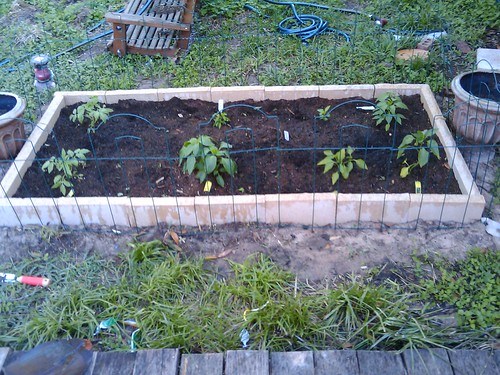When you use proper techniques when organic gardening, it really does show. It lets other know that you are concerned about growing healthy plants. As with any other useful skill, there is always room for you to grow and improve. The following advice in this article will help you out.
After sprouting occurs, it is not as important to keep them warm.Check on your seeds periodically to make sure you catch them when to remove the films.
This will also make your flower beds a more aesthetic aspect.
Pine is a surprisingly great mulch. Cover the surface of the ground with a two-inch layer of the pine needles; as the needles break down, they will disperse acid to the soil.
Space is important to remember when you plant an organic garden. You will most likely underestimate how much space you need when they are growing. Plan accordingly and leave enough space between the seeds.
Don’t let the little chores in your organic garden build up. Even if you’re to busy to focus on your garden’s needs each day, do small tasks that will help you avoid having to do large tasks when you finally do have time. For example, if you are playing in the yard with your child, you could clear a few bunches of weeds between checking on the burgers.
Use an aged laundry basket when you want to collect produce from your produce. The basket will make a great strainer for the fruits and vegetables.
Some typical examples include ageratum and petunias.If you don’t know whether your seeds require sun exposure, look online or at the package.
When you are growing seedlings in your organic garden, try ruffling seedlings using your hands or cardboard one or two times daily.It sounds weird, but there is actually proven research that shows this helps the plants grow.
Fill the jar with beer within one inch below the jar’s top. Slugs will be attracted to the beer and fall into the container.
Treated Wood
Create a raised bed for your garden out of stone, brick or untreated wood. Choose wood that is naturally resistant to rot and does not contain any chemicals. Some good choices you might consider are locust, cypress, and cedar. In a veggie garden, avoid using treated wood to enclose or demarcate different sections of your vegetable garden.If your existing garden structure contains treated wood, you should line it with a bit of plastic to create a barrier.
You have the tools, the products, and the skill set to apply those tips to your organic garden. This is great news! These suggestions can help beginners get started, and can give experienced gardeners more techniques to work from. You can always benefit from learning! Hopefully you have found at least one new strategy to utilize in your organic garden.

